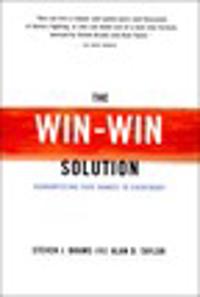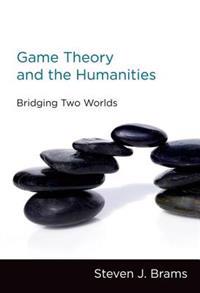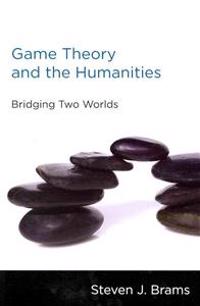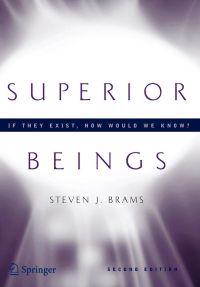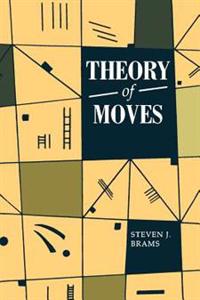The Win-Win Solution (Pocket)
avSteven J. Brams, Alan D. Taylor, Steven J. Brams
ISBN: 9780393320817 - UTGIVEN: 2000-10Since the publication of Roger Fisher and William Ury's highly influential book, Getting to Yes, it has been widely recognized that there is a middle ground between winning and losing in negotiation. Yet, while Getting to Yes was long on motivation, it was short on technique. What you really want to[...]
Game Theory and the Humanities (Inbunden)
avSteven J. Brams
ISBN: 9780262015226 - UTGIVEN: 201104Game theory models are ubiquitous in economics, common in political science, and increasingly used in psychology and sociology; in evolutionary biology, they offer compelling explanations for competition in nature. But game theory has been only sporadically applied to the humanities; indeed, we almo[...]
Game Theory and the Humanities (Häftad)
avSteven J. Brams
ISBN: 9780262518253 - UTGIVEN: 201209Game theory models are ubiquitous in economics, common in political science, and increasingly used in psychology and sociology; in evolutionary biology, they offer compelling explanations for competition in nature. But game theory has been only sporadically applied to the humanities; indeed, we almo[...]
Superior Beings (Häftad)
avSteven J. Brams
ISBN: 9780387480657 - UTGIVEN: 200612This book examines theology and the idea of a superior being in the context of game theory. The central question posed in this book is: If there existed a superior being who possessed the supernatural qualities of omniscience, omnipotence, immortality, and incomprehensibility, how would he/she act d[...]
Theory of Moves (Häftad)
avSteven J. Brams
ISBN: 9780521458672 - UTGIVEN: 199311Steven J. Bramsâ Theory of Moves, though based on the classical theory of games, proposes changes in its rules to render it a truly dynamic theory. By postulating that players think ahead not just to the immediate consequences of making moves, but also to the consequences of countermoves to the[...]
Mathematics and Democracy: Designing Better Voting and Fair-Division Procedures (Övrig)
avSteven J. Brams
ISBN: 9780691133218 - UTGIVEN: 2007-12-17Voters today often desert a preferred candidate for a more viable second choice to avoid wasting their vote. Likewise, parties to a dispute often find themselves unable to agree on a fair division of contested goods. In "Mathematics and Democracy", Steven Brams, a leading authority in the use of mat[...]

